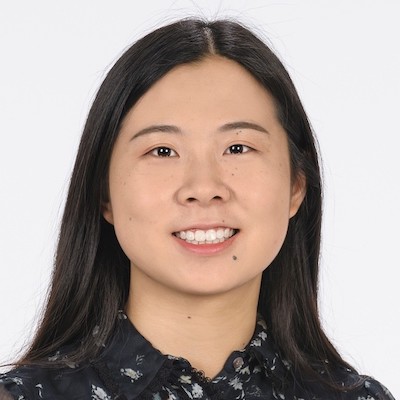Seminar Date: Tuesday, January 9, 2024
Time: 11:00 am
Location: 67-3111 & Zoom
Talk Title: Using Precise Polymers to Modulate Materials Interfaces
Zoom recording available for 30 days.

Bio:
Beihang Yu is currently a postdoctoral scholar at Berkeley Lab, working with Ricardo Ruiz and Ron Zuckermann. She obtained her PhD in Chemical Engineering from UC Santa Barbara in 2021 where she worked with Rachel Segalman studying the effects of polymer chain conformation on block copolymer self-assembly. Prior to that, she obtained her Bachelor’s degree in Polymer Materials and Engineering from Tsinghua University in 2016. Beihang’s current research projects include developing sequence-defined polymer brushes for engineering semiconductor/bio interfaces, and polymer-based platforms for area-selective atomic layer deposition.
Abstract:
Precise biomacromolecules program diverse, sophisticated structures and functionalities in biological systems. With precisely defined synthetic polymers, there are unique opportunities to modulate material properties, in particular at interfaces and at the nanoscale, with their monomer-level programmability and more diverse chemical functionality than biomacromolecules. In this talk, I will first discuss how we have leveraged sequence-defined polymers (polypeptoids) to install precise chain conformation control into traditional polymers to study the role of non-ideal chain conformation in block copolymer self-assembly, and we highlight the critical role of chain conformation at the domain interface. For the second part of the talk, I will discuss my postdoctoral work at the Molecular Foundry and with the Center for High Precision Patterning science, where we developed sequence-defined polymer brushes as highly versatile, lithographically compatible surface modification materials for semiconductor substrates. The programmability of these sequence-defined polymer brushes, combined with lithographic nanopatterning, allows us to precisely modulate the nanoscale chemical functionality of surfaces to enable selective immobilization of biomacromolecules onto addressable arrays, as well as area-selective deposition of metal oxide hard masks for pattern transfer in microelectronics manufacturing. These platforms demonstrate the unique capability of sequence-defined polymers to precisely control nanoscale properties in systems with polymeric materials, where every monomer position on the polymer chain could be programmed for functionality.

